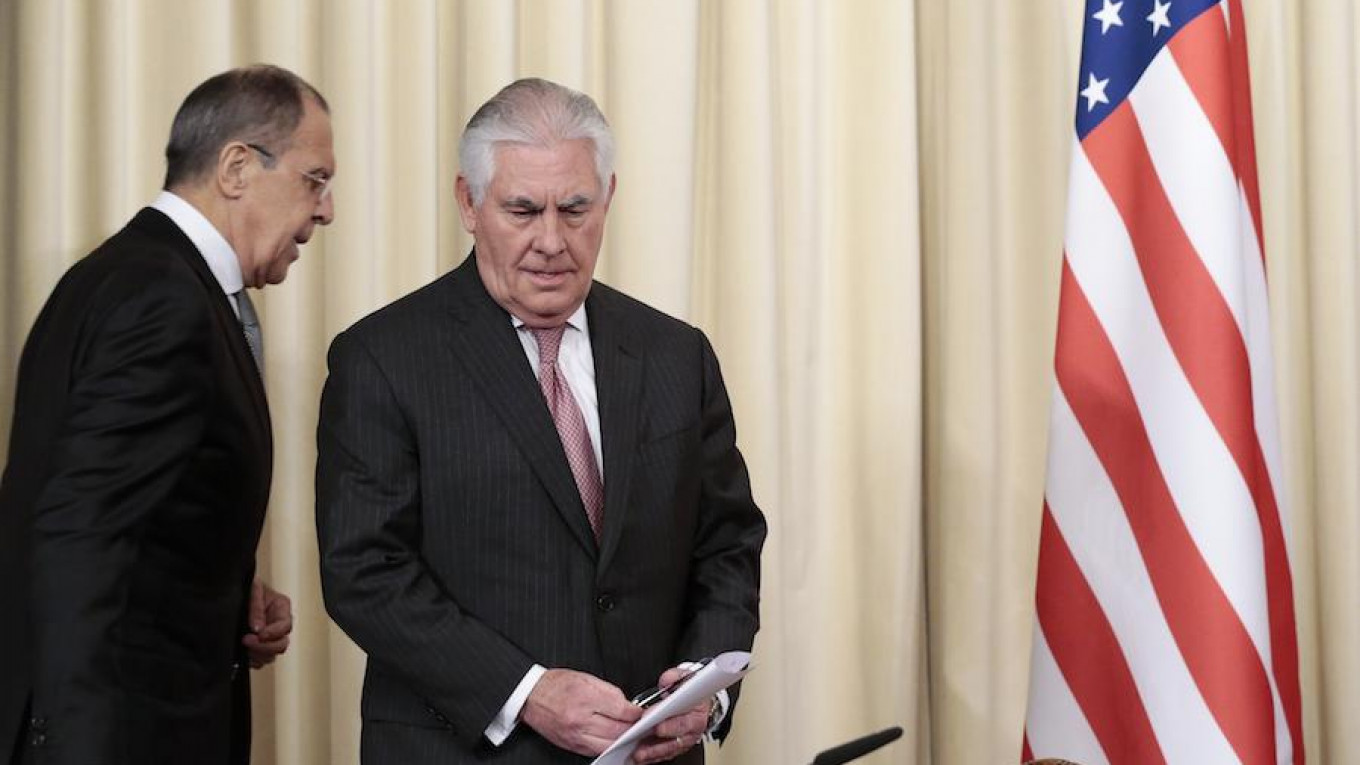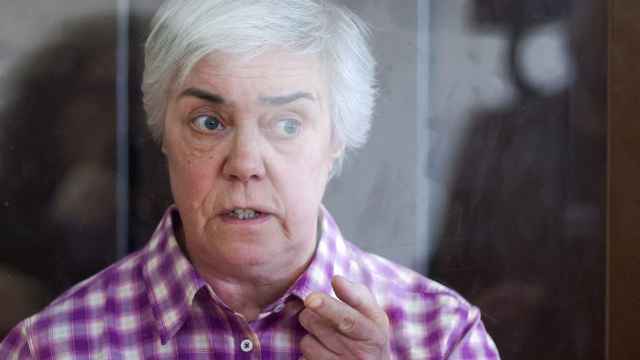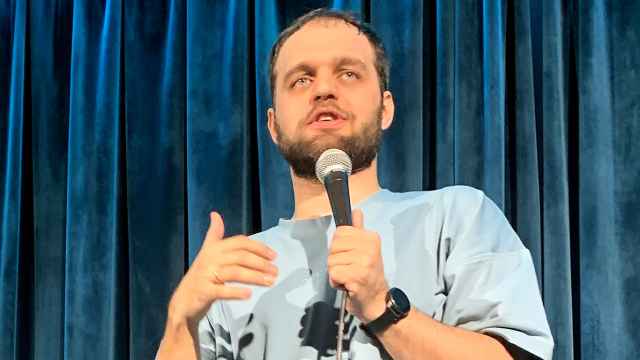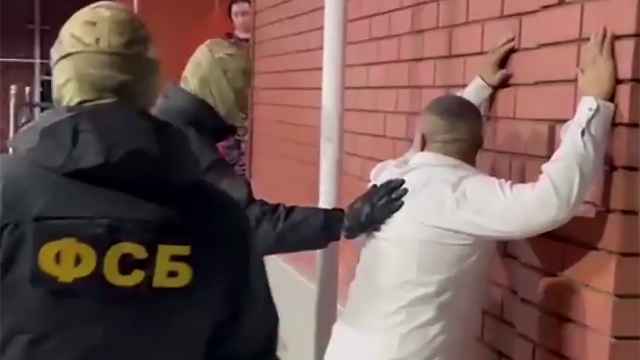The expectations for Rex Tillerson’s visit to Moscow were high. Some hoped it would provide evidence that U.S. president Donald Trump’s administration will play soft with the Kremlin. Others hoped to see Tillerson coerce Russia into reversing its support for Syrian President Bashar Assad.
But both sides expected too much. Instead, onlookers were subjected to awkward showdown between Tillerson and his Russian counterpart, Foreign Minister Sergei Lavrov. The two barely made eye contact during a delayed 45-minute press conference in which Lavrov easily out-talked Tillerson. Here’s the breakdown:
* The United States and Russia continue to talk as if they are on different planets. Overall, there was very little visible warmth between the U.S. Secretary of State Rex Tillerson and Russian Foreign Minister Sergei Lavrov.
* Throughout the conference, Tillerson and Lavrov highlighted major gaps in perception on a variety of issues, but the major disconnect on the use of chemical weapons in Syria was the core focus. Tillerson held firm to the U.S. position that Assad was behind the attack. Lavrov repeatedly called for international investigation.
* "I am not trying to level accusations at anyone or exonerate anyone. I am just saying that we should have an investigation to establish what happened on April 4," Lavrov said after Tillerson called U.S. evidence of Assad’s hand in the gas attack “conclusive.”
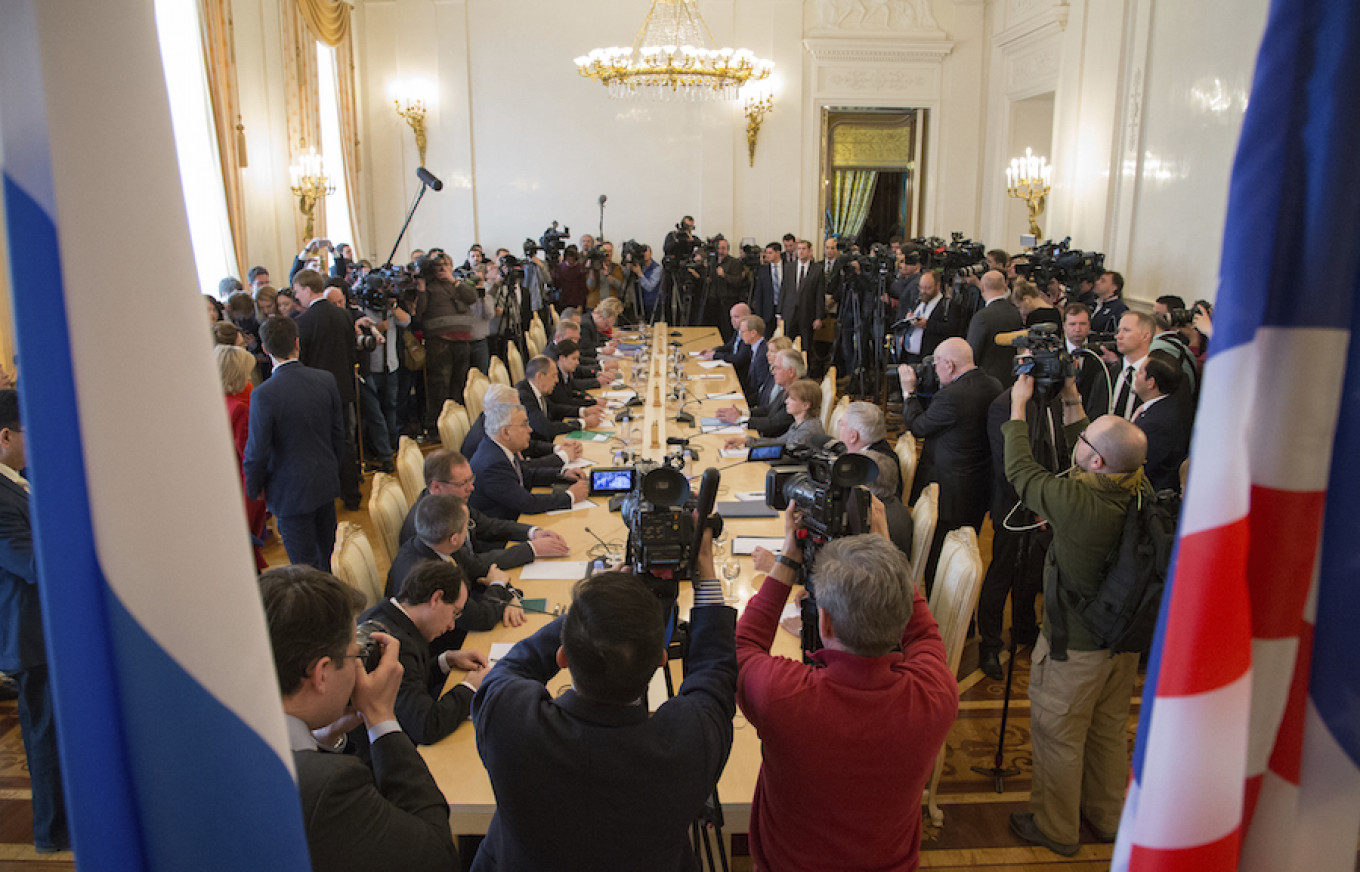
* Lavrov said the two had agreed to an international investigation into the use of chemical weapons, just like Russia wanted. But just hours after the conference, Russia vetoed a U.S.-backed UN Security Council resolution demanding Assad’s government cooperate with the investigation. Lavrov later said the resolution was intended to blame Assad.
* Tillerson failed to secure Russia’s support in persuading Assad to step aside. Lavrov brushed off Tillerson’s position as that of “a new man” not interested in history, and then ran down the list of U.S. interventions: “We already knew all too well how this ends.”
* Russia thinks it can use the suspended U.S.-Russia Syrian airspace safety agreement as leverage to bring Trump back to Moscow’s way of thinking in Syria. Lavrov said Putin was willing to reinstate the agreement if the U.S. limits its strikes to terrorist targets, and does not hit Assad in the future.
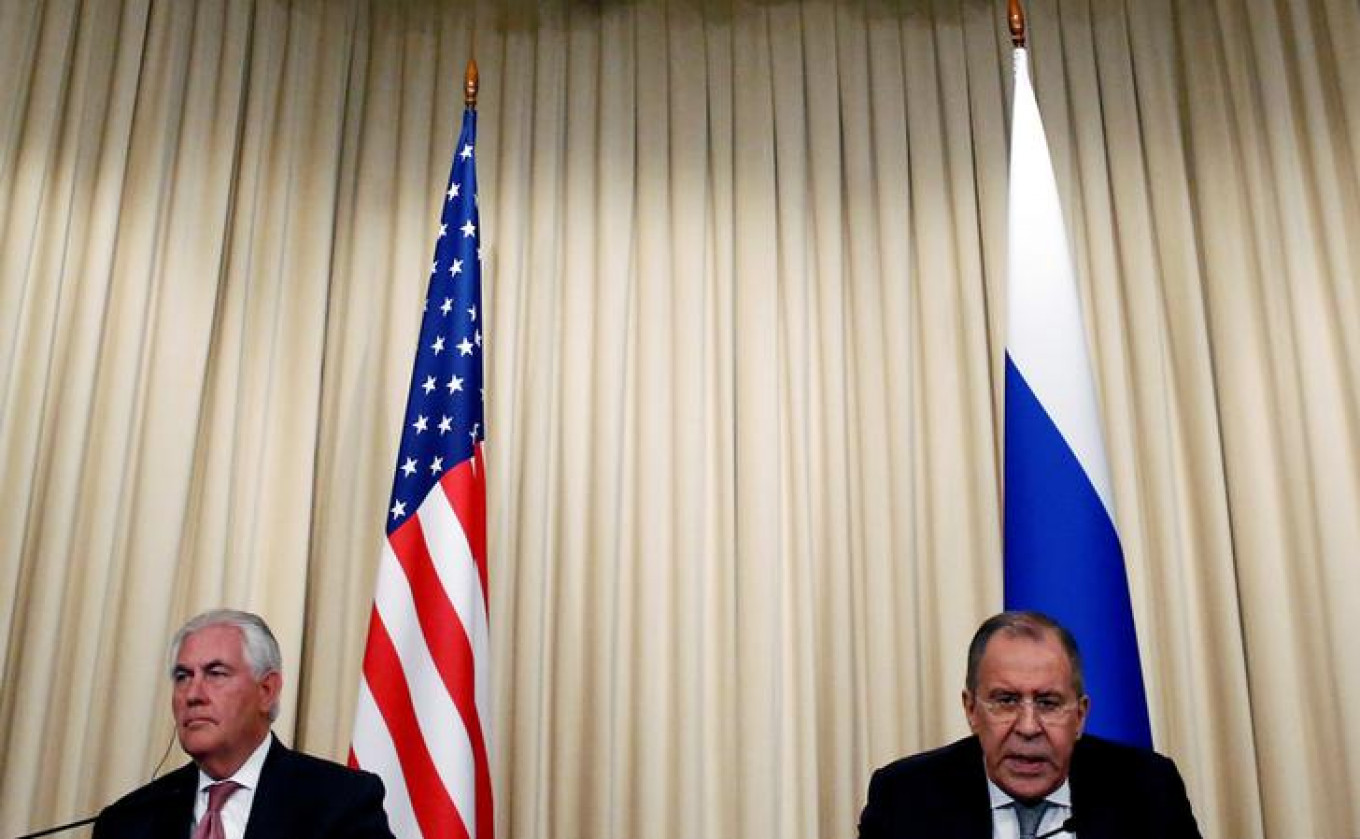
* To Russia’s likely disappointment, Tillerson reaffirmed Washington’s commitment to sanctions imposed on Moscow for its 2014 annexation of Ukraine. The condition for lifting sanctions remains the same as Obama’s: full implementation of the Minsk II ceasefire agreement in eastern Ukraine.
* Tillerson said the U.S. is even considering additional sanctions on Russia, this time in response for alleged Russian interference in the U.S. presidential election: “The issue of the election interference is a serious issue, one that could attract additional sanctions.”
* Tillerson said the two sides “touched only briefly on the topic of cyber security.” He stressed that the U.S. sees a difference between the use of “cyber tools” to influence internal, domestic decision-making and using them to interfere in weapons development programs.
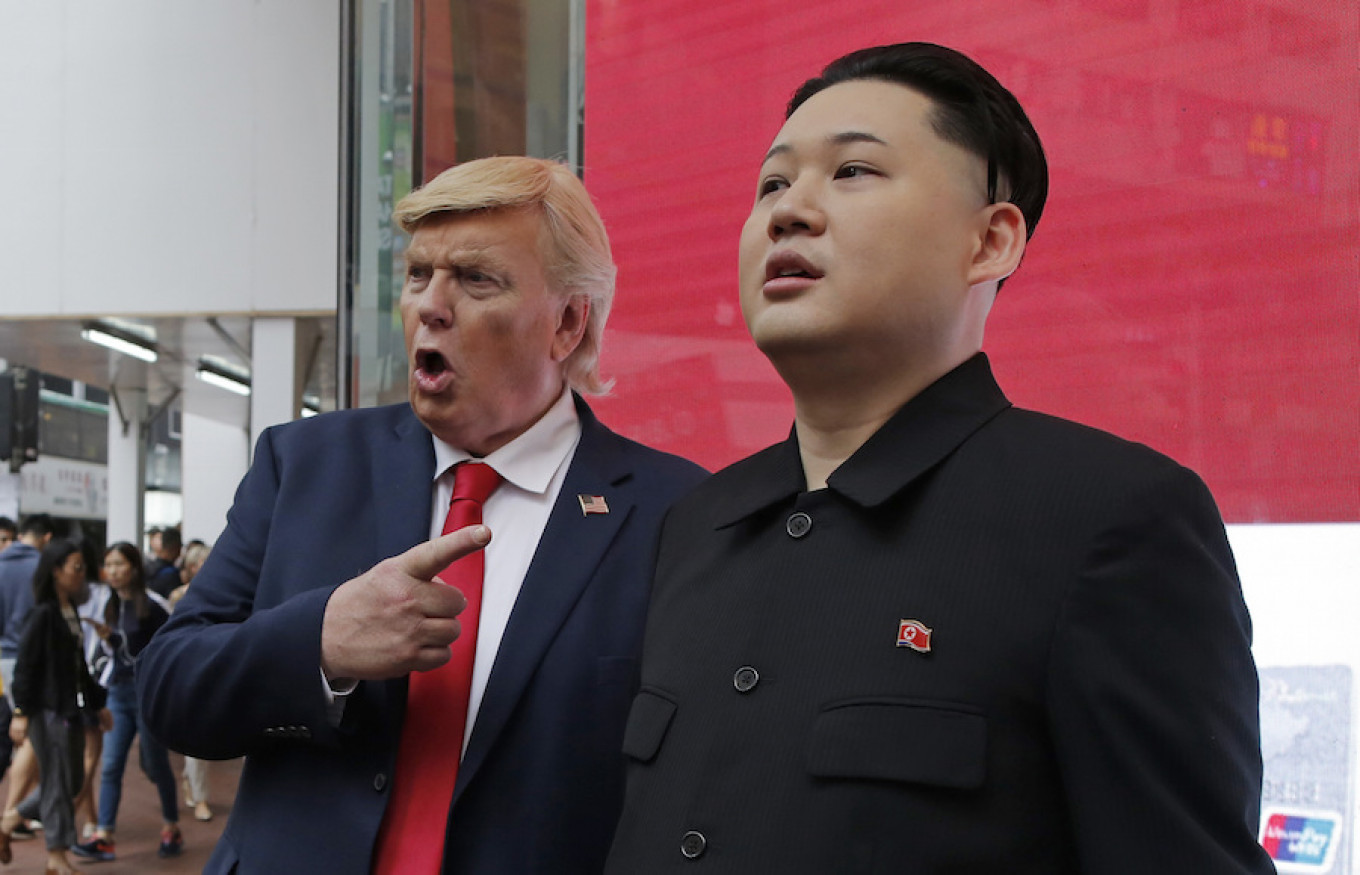
* There was some common ground. Both the U.S. and Russia agree that North Korea needs to be rid of nuclear weapons — though they did not specify how, and there will likely be disagreement on how that could be done. And both agreed measures should be taken to stabilize U.S.-Russia relations.
* How they intend to stabilize those relations was not clear: “We agreed to establish a working group to address small issues to stabilize the relationship and work on long term issues," Tillerson added.
A Message from The Moscow Times:
Dear readers,
We are facing unprecedented challenges. Russia's Prosecutor General's Office has designated The Moscow Times as an "undesirable" organization, criminalizing our work and putting our staff at risk of prosecution. This follows our earlier unjust labeling as a "foreign agent."
These actions are direct attempts to silence independent journalism in Russia. The authorities claim our work "discredits the decisions of the Russian leadership." We see things differently: we strive to provide accurate, unbiased reporting on Russia.
We, the journalists of The Moscow Times, refuse to be silenced. But to continue our work, we need your help.
Your support, no matter how small, makes a world of difference. If you can, please support us monthly starting from just $2. It's quick to set up, and every contribution makes a significant impact.
By supporting The Moscow Times, you're defending open, independent journalism in the face of repression. Thank you for standing with us.
Remind me later.


